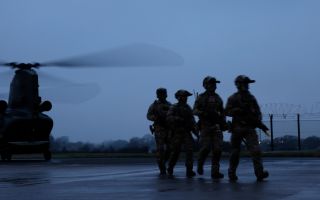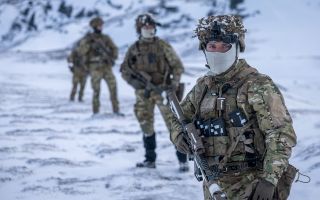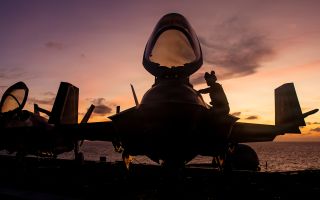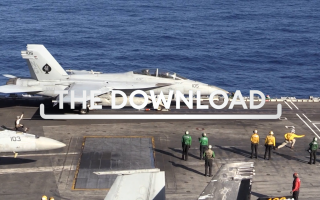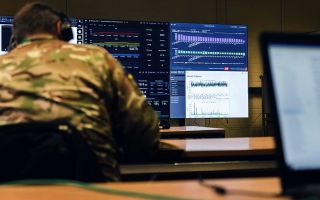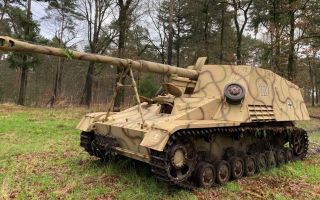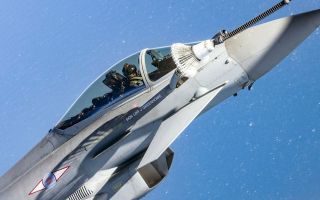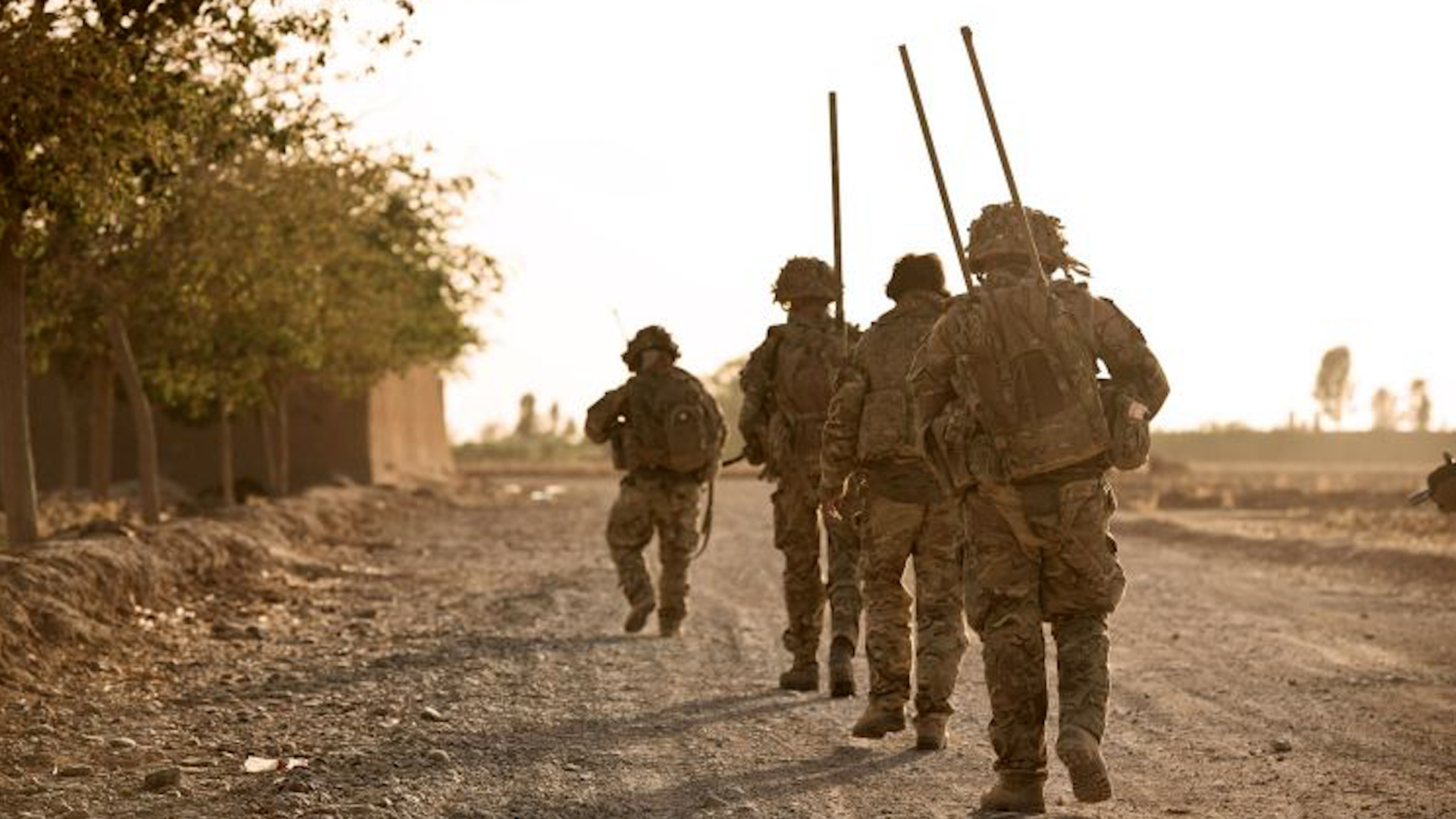
Sitrep: Ten years on from Op Herrick, how has Afghanistan shaped the military?

This year marks 10 years since the UK Armed Forces completed 13 years of combat operations in Afghanistan.
On Saturday, it will be a decade since British troops left Helmand and Camp Bastion and headed home, although Operation Herrick didn't officially end until December 2014.
But after focusing so much of the military's might and attention on Iraq and Afghanistan, how much effect have those conflicts had on today's Armed Forces?
Major General Richard Nugee was there in the final days of the withdrawal from Helmand Province and joined this week's Sitrep podcast – which analyses the top defence stories of the week and is available wherever you get your podcasts.
He said the Army was at war, and the tempo didn't drop.
"The day you came home from Op Herrick [at the end of a tour] you knew the date that you were going back," he said.
"So you were never off the hook of the tempo, and the time you had between operations was largely spent training and a little bit of leave."
Sitrep's resident expert Professor Michael Clarke told the podcast the campaign shaped the forces, shaped the Army and shaped the way the public thought about the Army and the forces.
Changing the kit to fight the war
Maj Gen Nugee said the Army had to work out how to adapt to the conflict and change the kit that was available.
"We changed our equipment, we changed our mindset, we changed our training. We changed just about everything to win the war in front of us because that was what was important," he said.
"And inevitably, therefore, the sort of campaign that we're seeing in Ukraine… was not at the top of our agenda.
"While we absolutely need to understand that and how to fight that, we needed to win the war in front of us."
Currently, the British Army has a fleet of protected patrol vehicles including Foxhounds and Ridgebacks.
These were all procured for desert fighting, but they can still play a role now, Maj Gen Nugee said.
"We can use some of them, without a doubt," he said. "We have learned how we can use them in different types of operation."
The Afghanistan veteran explained tanks were not used in Op Herrick, with artillery also not used much.
This resulted in the Army losing the capability and "more importantly… the equipment".
"I think we're slowly recapitalising that now, but it's taken time to try and do that," he explained.
There is also a need today for new kit that was not vital in Afghanistan.
"Air defence was almost non-existent," he said. "We now need to understand air defence… for drones and fighter jets.
"Again, our legacy equipment has had 10 years of not even being thought about really, because we didn't need to in Afghanistan.
"We need to think about how the modern ideas of warfare, of drones and things like that affect our ability to operate and what we need in terms of counter-cyber and so on.
"We haven't done that for 10 years. We've been out of the loop for 10 years because we'd been fighting in Afghanistan."
Everybody did a bit of Afghan
Professor Michael Clarke told Sitrep "everybody in this present generation that you speak to did a bit of Afghanistan" as the "Army was being bent out of shape" and it needed to concentrate on Afghanistan and Iraq.
Maj Gen Nugee added that the campaign did not affect the structure of the military, but it did shape the people in a different way.
"The use to which we put people was definitely affected," he said.
He used the example of the Royal Engineers, who saw their role changed from their traditional one and were "sort of skewed into IED hunting and one or two other things like that".
"We took people whose skills were needed for that and put them into different operations," he said.
"So they still remained Royal Engineers and still remained in the regiments, if you like, [but] we used them very, very differently."
He also explained how a lot of personnel became infantry who wouldn't normally have done infantry, although that was something that had been done before in Northern Ireland.
"Everybody got slewed towards infantry and protection," he said.
Impact on mindset and being ready for the next war
Maj Gen Nugee said a lot of impetus was put on understanding counter-insurgency as opposed to a force-on-force war.
He said he was first deployed to Afghanistan in 2006 with the Ace Rapid Reaction Corps, which was "really heavily into counter-insurgency".
But when they came back, they did a warfighting exercise looking at force-on-force conflict to try to "understand how we fight a proper war".
"I was responsible, among other things, for targeting. And one of the questions that came up is 'how many casualties are acceptable, civilian casualties?'," he said.
"And in counter-insurgency, the answer is zero is acceptable.
"[In] a war, as we're seeing in Ukraine, as we're seeing in Gaza, as we're seeing in Lebanon, civilian casualties are a fact in a force-on-force war. However much you try to avoid, they are a fact.
He added that "you have to rethink so much about how you go about things".
"Things that are affordable, if you like, in a counter-insurgency, you can spend ages trying to find one person.
"In a force-on-force war, that's just not a probability and it's not a possibility, however unfortunate that it is.
"And so it is a completely different mindset, and it's in a sense you've got to be much, much, much harder in a force-on-force war."
Now, the trick is to be ready for the next war, not the last one, so how different will the next war be?
Well, according to Prof Clarke, "it will be very different", with it looking like fighting "against naked aggression".
"That's what it looks as if we are up against," he said. "But the next war will be different because the technologies are so different, the battlefield is so different, it will be more terrible in lots of ways.
"And we're still grasping the conceptual differences of force-on-force war now.
"I'm doing a certain amount of work on this. And to be honest… it is scary stuff.
"It's really scary."
You can listen to Sitrep wherever you get your podcasts, including on the Forces News YouTube channel.

